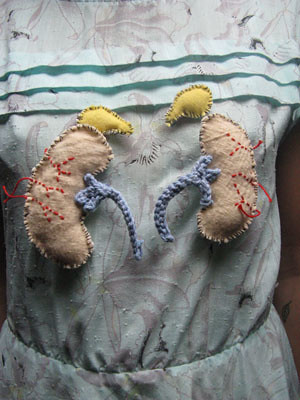During my three weeks working in the pediatric dialysis unit and the post-kidney transplant unit, I noticed a troublesome trend. The whiter and younger pediatric patients were resting comfortably in the post-transplant unit with their new surgically placed kidney being meticulously taken care of. The darker and older pediatric patients spent countless, mindless hours attached to a dialysis machine with little hope for a new kidney after years of being on the waitlist.
At first, I attributed this difference to pure coincidence. I convinced myself that there was a greater medical urgency for transplant for the white child, or maybe that the black child didn’t have insurance and was unable to afford the transplant surgery. Yet, after reviewing the difference in clinical courses and socioeconomic information of our own pre- and post- kidney pediatric transplant patients, I found out that I was wrong. So, I delved into the research and found tons of evidence supporting the simple fact that being a minority child with the same kidney disease, same socioeconomic status (SES), and same insurance as a white child lowers your chances of receiving a kidney transplant; all this even though a black child is twice as likely to develop end-stage renal disease (ESRD) in the first place. This is an injustice to our minority children that has not been appropriately challenged, and we need to start taking action now.
With 10,000 children living with ESRD and only 800 pediatric kidney transplants performed yearly, only 1 out of 100 ESRD children will receive a kidney transplant. Imagine lowering those chances even further simply because a child is not white. When accounting for clinical factors and SES, a black child would be 12% less likely to get a kidney. Particularly, they are 40% less likely to get a deceased donor transplant and 69% less likely to receive a living donor transplant. Unsurprisingly, living donor transplants lead to superior health outcomes in ESRD patients compared to the deceased donor transplant.
These disparities are not only attributable to waitlist placement but actually throughout all steps of the kidney transplant process — referral, evaluation completion and waitlisting. Nephrologists were more likely to refer a white child rather than a black child for transplantation even with similar parental nonadherence behaviors. Additionally, black children are less likely to complete their pre-transplant evaluation and 8% less likely to be placed on the waitlist.
But why do these disparities exist? Well, the causes of racial disparities in pediatric renal transplant access are multifactorial and hard to assess. If controlling for clinical and SES factors, then studies consistently identify physician bias, systemic racism and historical distrust of the transplant process as main contributors. To be sure, there are many individualistic and systemic reasons for why certain patients get kidney transplants at different rates than others that are not all explained by racism and distrust.
Interestingly, targeting social determinants of health, specifically education, has been shown to ameliorate these racial disparities. In adult nephrology, studies found that implementing initiatives that promote health literacy for the patient and family showed a 40% increase of pre-transplantation evaluation completion. These initiatives consist of formal, in-center patient education curricula that increased renal transplantation rates for poor and minority patients and luckily, was more cost-effective than not providing the curricula. Although these interventions have been implemented in the adult nephrology teams, these methods and, ideally, the results could be replicated in the pediatric nephrology teams. I mention this intervention as an example of how programs are targeting and reducing racial disparities and to underline that this can be done in a pragmatic, impactful and cost-effective way.
In summary, racial disparities independent of clinical and SES factors exist in access to pediatric kidney transplants, and there are preventable and targetable causes that need to be addressed to practice equitable and effective health care.
Image Credit: Untitled (CC BY-NC 2.0) by Emma hands

